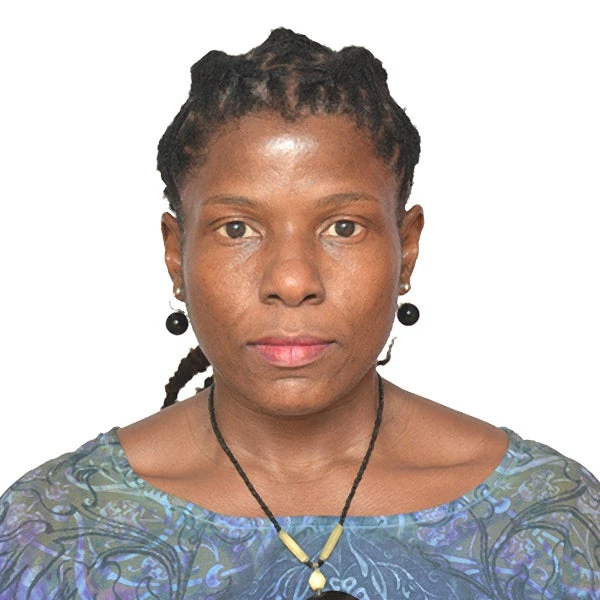
As the oldest university in Tanzania, the University of Dar-es-Salaam (UDSM) has an impressive line-up of notable alumni: Just try and google them. As presidents or policy leaders from Uganda, the Democratic Republic of Congo, Rwanda, South Sudan, or, indeed, from Tanzania itself, they have one thing in common—their imprint on public policy within their countries, either as actors or as critics.
And that is as it should be.
But, for a few moments last month, several UDSM students also decided to join the eminent ranks of the “great and the good”—at least tentatively—in a roleplay in which they stood up as critics or defenders of their stance on public policy in the University Debate Challenge, which was sponsored by the World Bank.
The motion was “For Tanzania to accelerate growth, the government should invest in infrastructure rather than education,” and the goal was to deepen students’ understanding of policy areas and to help them learn the importance of evidence-based decision-making, given the competing demands and policy tradeoffs that often have to be made.

A key criterion for teams’ advancement through the preparatory stages was their ability to back up their arguments with the relevant evidence.
“We were challenged to learn more, and we had to do plenty of research in order to be armed with information, so that if the other team came in to crash your point, you would respond with confidence on what you were talking about,” said Zonata Daudi, a second year student at the School of Education. “In the end it wasn’t all that easy as some of us were only first-time debaters.”
To ensure that students were not wedded to a particular side of the motion, throughout the practice runs, teams would be randomly assigned to either support or oppose of the motion.
“Swapping their roles as they move up ensures that students are capable of defending both answers with credible evidence,” says Yutaka Yoshino, World Bank Program Leader and Lead Economist for Tanzania, Burundi, Somalia, and Malawi. “This is because the point of learning is to be able to at least understand the opposite side of the spectrum based on an objective assessment of facts.”
As an international development resource, and one with access to an extensive amount of knowledge and data, the World Bank’s main role (beyond logistical support for the debate) was to share the massive amount of knowledge the Bank has collected and generated through analytical work and project implementation, both in Tanzania and elsewhere.
An open house session was organized in advance at the Bank’s offices, where the staff made presentations to students and university faculty members of existing Bank analytical work.
“It is not every day that you have World Bank staff devoting an entire afternoon to supporting you,” said Dr Gladness Salema, the lead organizer of the tournament and Deputy Director at the Innovation and Entrepreneurship Center at the University.
Being the oldest and best known university in the country also means the University comes in for some flak on the quality of its education, which is a key challenge for the country in general.
Prof Cuthbert Kimambo, acting Vice Chancellor, acknowledged this at the tournament’s Finale: “We have endeavored to change our curricula to incorporate entrepreneurship and innovation education. We have also decided to embark on extra and co-curriculum activities to bridge the skills gaps.” He said when the opportunity of hosting the debate came along as one way of improving students’ communication and analytical skills “we welcomed it positively.”
When the semifinals got underway on the morning of Saturday May 27, there were four debating groups (A, B, C, and D) consisting of 10 members each. The main points students made were:
- Education can be discriminatory while infrastructure is not.
- Educated people can negotiate better infrastructure contracts.
- If people can't access electricity they can't engage in entrepreneurial activities.
- Good roads will help transport agricultural produce to urban markets.
- It's a global economy and participation starts with education: if you don't educate your people, others will take advantage of your country’s resources.
- Only education can close the gender gap, not infrastructure.
- There are faster returns to infrastructure than education.
- Failure rate in education means water investment.
Finally, the Judges came to their decision: in favor of Group D, which had argued against the motion, advocating public investment in education over infrastructure.
“I judged you in the same way I would judge my specialists when they present me ideas for World Bank activities,” said Bird during her remarks. “The passion for the subject, the clarity of the argument, and the strength of the evidence are the basis of how I make my decisions.”
In her closing remarks, Bird emphasized the importance of providing platforms like this to probe policy decisions. “We have been consulting with groups of young people in different parts of the country as part of our preparations for the new Partnership Framework for the Bank in Tanzania,” she said. “Initiatives like this are an excellent way for us to help build the next generation of leaders.”
A version of this article appeared in Tanzania’s The Citizen newspaper.


Join the Conversation